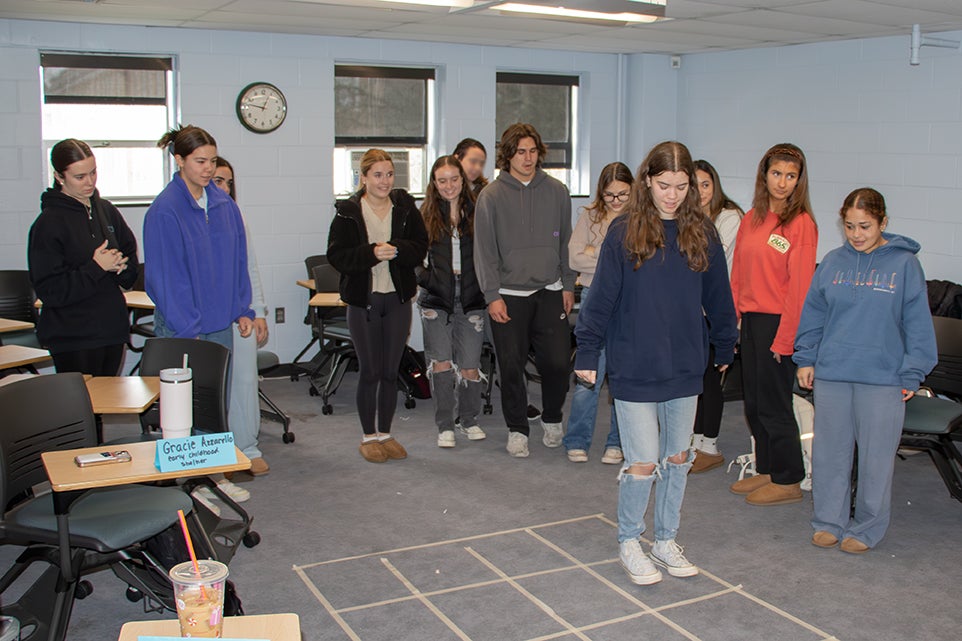Navigating academic, social and campus life can often be overwhelming, and sometimes frustrating, for new students. Student mentors can offer guidance and a friendly connection.
“Mentors help serve as a bridge between professor and students,” said George Nippo, educational professional advisor for the University of Rhode Island’s Feinstein College of Education. “As mentors in the College of Education sections, they talk specifically about education classes and their goals at URI.”
Nippo, who also instructs the URI 101 seminar for incoming students that assists them in their transition to college, works in tandem with student mentors to design activities and group discussions that will help them achieve academic success.
“Mentors share things that were really successful during their first semester at URI, along with things that didn’t go as well, and advice on how not to make the same missteps that they made during their first year,” Nippo explained.
The College of Education has six student mentors who assist incoming students with everything from selecting courses to helping them find social groups that align with their interests. They are Rebecca Buehler, elementary education/psychology; Geo Colon, secondary education/English; Callie Fagundes, elementary education; Molly Fitzgerald, elementary and early childhood; Lea Ricci, secondary education/biology; Jenna Seplowitz, elementary education
Nippo said that the mentors are instrumental in helping first year students boost their confidence.
“Mentors reach out weekly just to check in, remind students about assignments, expectations, or just to say hello. First year students hearing from a peer can be just the push they need to get things done that week,” he said.
Fitzgerald knows firsthand the effect that a mentor can have on an incoming student, which prompted her to become one.
“I wanted to create a strong impact on my group of first-year students just as my URI 101 Mentor did for me,” Fitzgerald said. “The biggest challenge for students adapting to college life in today’s academic environment is time management. Having a busy schedule and managing your freedom for the first time is a daunting task for most students,” said Fitzgerald.
She added that with the increased use of technology, students have a difficult time staying focused on their assignments.
The pressure of “trying to fit in among the student body,” is what Fagundes said she found to be the common theme among her student group. “Whether that pressure comes from their parents to withhold certain GPAs or play on sports teams, or that pressure from peers trying to persuade them to join Greek life, these pressures are so heavy,” she said.
Student mentors face challenges as well since they, too, are students.
Fagundes said that her biggest challenge as a mentor was to make her students realize that she was also a peer. “I am not a teacher or professor. I walk the same routes to class that they do and could even be in some of the same classes they are in,” she said.
For Colon, making sure that he interacted with every student in his group was challenging, while Fitzgerald struggled with creative ways to keep the group engaged.
All the student mentors see the role as an opportunity to develop their leadership potential.
Fagundes admits that she was nervous to go through the interview process but pushed herself out of her comfort zone because it aligned with her goal to become an elementary school teacher.
“In my career I would need to get comfortable speaking in a classroom setting and learn how to work with other instructors to support a group of students. This mentor role served just that purpose,” Fagundes.
The mentors are proud of the personal connections they make with their student groups, and make a point of letting the students know that they are approachable and a resource even after the URI 101 course is over.
Fagundes recalls, “After class I had a few students reach out to me looking to meet for coffee on campus and discuss their future at URI.”
This, she said, was the moment she knew that she had made an impact.

